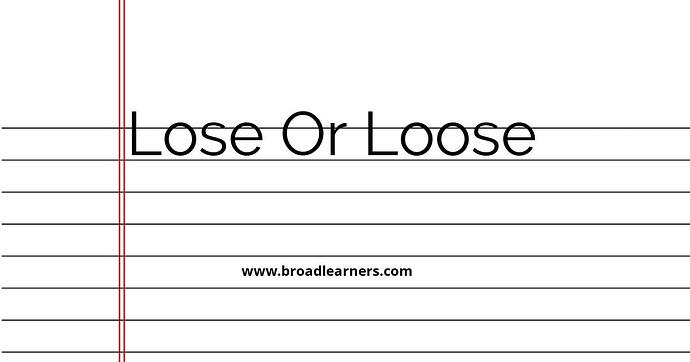'Lose' and 'loose' are commonly confused words in English grammar. Understanding the difference between 'lose' and 'loose' is important to use them correctly in written and spoken English.
'Lose' is a verb that means to be deprived of something or to fail to win a game, competition, or a challenge. It is used to describe the act of misplacing something or being unable to find something.
'Loose' is an adjective that means not tight or not firmly fixed in place. It is used to describe something that is not secure or tightly bound.
Let's take a closer look at the meanings and usage of 'lose' and 'loose'.
| 'Lose' | 'Loose' |
|---|---|
| The word 'lose' is a verb that means to be deprived of something or to fail to win. | The word 'loose' is an adjective that means not tight or not firmly fixed in place. |
|
|
To remember the difference between 'lose' and 'loose', it can be helpful to remember that 'lose' ends with an 'e' and is a verb related to misplacing or failing, while 'loose' ends with an 'e' and is an adjective related to something not being tight or secure.
Here are some examples of correct usage:
- I don't want to lose my phone again. (misplace or be unable to find)
- Make sure the screws are not loose. (not tight or secure)
- She always loses in chess. (fail to win or achieve)
- He prefers to wear loose-fitting clothes. (not tight-fitting)
Remembering the correct usage of 'lose' and 'loose' will improve your grammar and communication skills.
